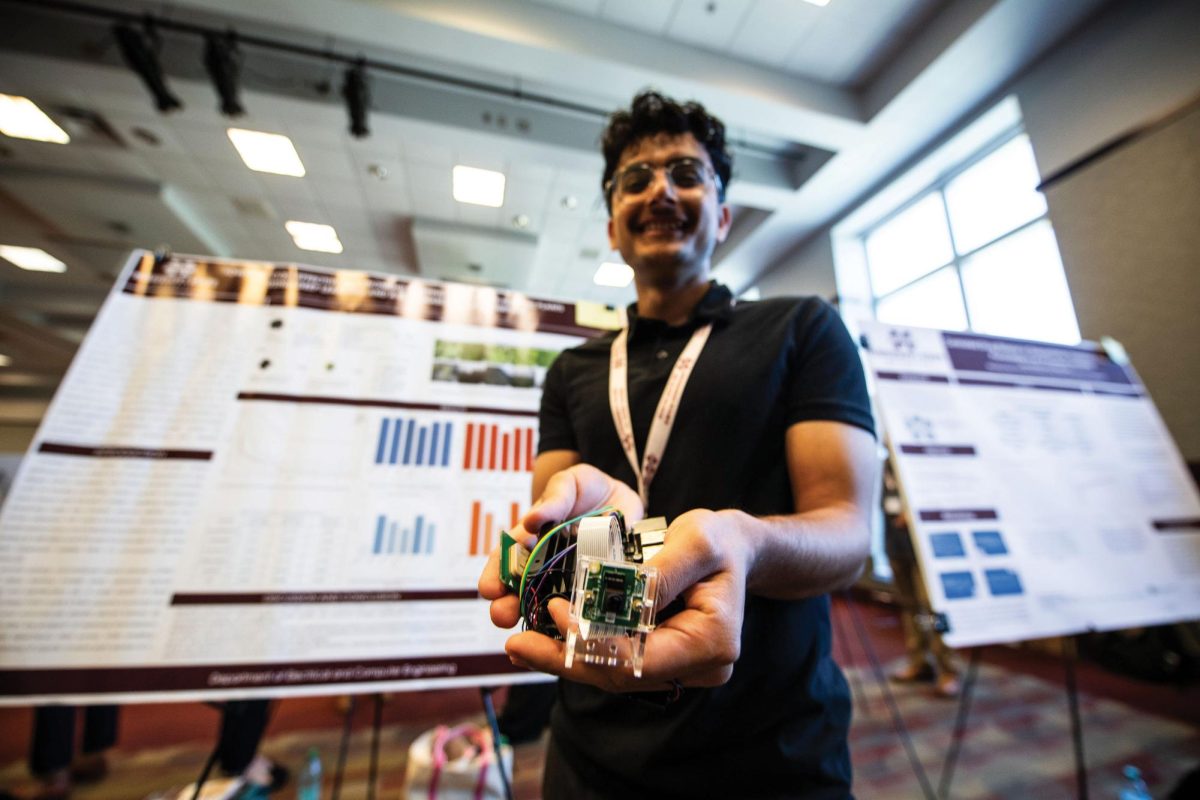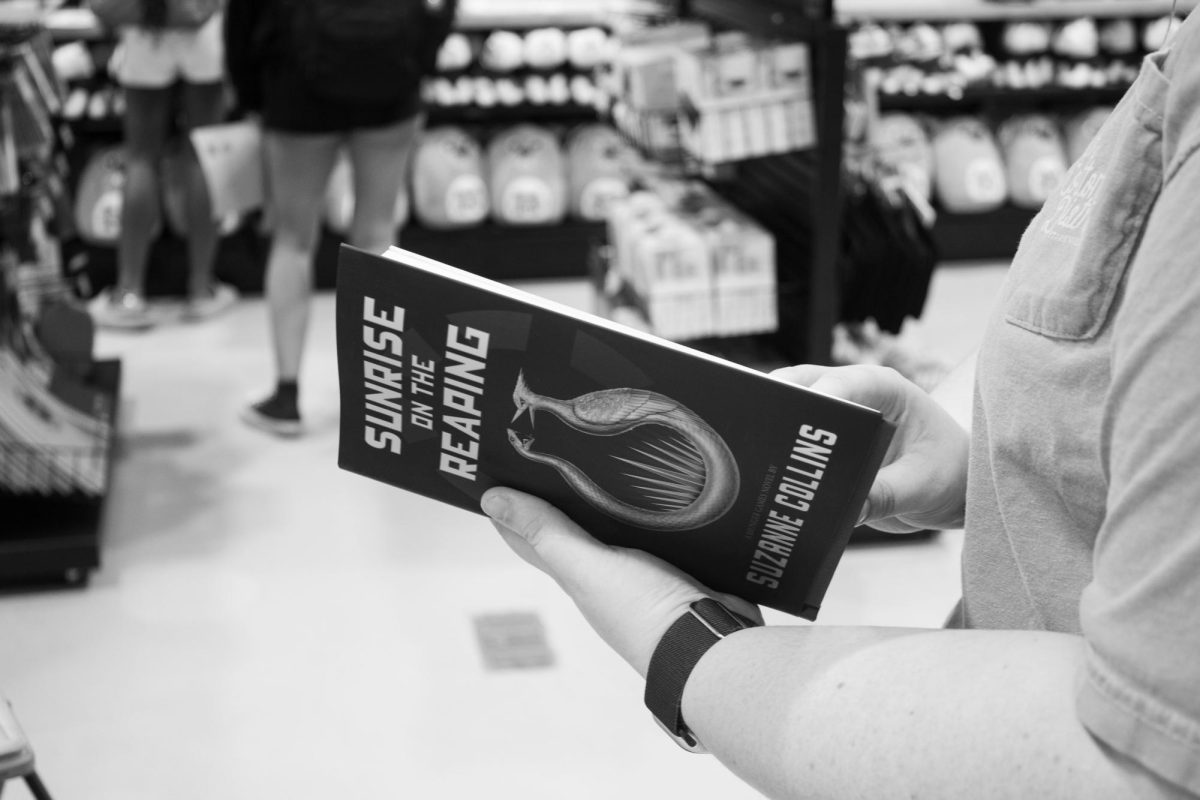Many people have a sour taste in their mouth for the word “fermentation.” After bearing witness to the kombucha craze this year, I decided to visit the second annual Fermentation Fair put on by Starkville’s Homestead Education Center. The fair took place this past Friday at the education center’s location off of Old Highway 12. The fair and other events put on by the center are free for members and only $5 for non-members.
With my cash in tow, I arrived at the event location and easily found parking. When checking in, there was a table that accepted cash, but participants could also purchase a ticket online. I did not expect this, but I thought it was very convenient. Upon my arrival, I noticed the festival was a very small and rural version of a traditional festival, having only five vendors in total.
Jason Allison, a local fermentation enthusiast, spoke for about 30 minutes about kefir, a fermented milk drink that uses bacterial grains to establish good gut health. I have never heard of kefir before, but after watching Allison refer to the grains as his “little buddies,” I have to admit I wanted some “little buddies” too. Allison demonstrated how to properly ferment the grains in milk and the daily maintenance required. He brought take-home jars of the grains, so the event attendees could also start their own kefir batch.
The next demo was about sourdough bread, and I was anticipating this presentation. A lot of people do not actually realize that sourdough has a fermented starter involved which gives it the notorious “sour” taste.
Michael Dodson, a biology instructor and owner of Daddy’s Cupcakes, spoke about how a sourdough starter works.
“The starter contains yeast and bacteria of different species that are actually digesting the starch that is in the starter, but also the starch in the bread too. That causes the alcohol, acids and carbon dioxide to produce which will cause the rising of the bread,” Dodson said.
Apparently, it is the production of acid that gives sourdough its signature tartness. Dodson’s presentation was very informative, but definitely geared towards someone who has already tried their hand at making sourdough. I learned a lot, but definitely not enough to try my own hand at it any time soon. He had a variety of breads for sale including sourdough bread, Amish friendship bread and miso bread, which is another fermented starter bread. I did not stick around to sample, because immediately following that demo, there was the final presentation about mead.
For those who do not know, mead is any alcohol made with honey. There are different variations, but the mead at the festival was in the style of wine. Queen’s Reward is a local meadery in Tupelo, and the owner Jeri Carter was there to prove making mead is just as fun as drinking it.
“Oh, it’s fun. You need to come to the meadery, come do a tasting, and let us show you around and show you where we make it. It’s fascinating. This is where alcohol started. It happened before anything else. It’s just so cool that it’s having a come-back, and you get to be creative in the process,” Carter said with a smile.
Due to lacking a liquor license, I was unable to try any of the Queen’s Reward products at the event. However, Carter sold me on it, and I picked up a bottle as soon as I left. Scotty’s Wine and Spirits in Starkville is the only liquor store with the full selection of Queen’s Reward mead. At Scotty’s, I bought a bottle of the “Pucker Up” flavor infused with lemon. I paid $26.99 for a normal size bottle of mead, which is double what my normal wine choice is, but it is truly something special. The notes of honey and lemon are in this wine, but it also has that dry aftertaste of normal wine. I will definitely repurchase and consider taking a trip to the meadery next time I find myself in Tupelo.
There were two more tables that had homemade kombucha and kimchi, which are arguably the two most notorious fermented foods. I tried some mixed veggie kimchi, a ginger kombucha and original sauerkraut from the Kitchen Trails booth owned by Marion Sansing. I asked her what sparked her interest in fermentation.
“The health aspects of it, and it being good for your gut health. I’m into healthy foods, and fermentation is a big part of health foods,” Sansing replied.
The ginger kombucha was fairly potent, but I could see why some enjoy the drink in general. The Kitchen Trails’ kimchi and sauerkraut were deliciously tart and had a really present, yet pleasant, fermented flavor. I enjoyed the Kitchen Trails’ products very much.
All in all, for $5 I am coming home with a wealth of knowledge about homemade fermented products and a new favorite alcoholic beverage. The event was much smaller than I anticipated, but it actually made the interactions more insightful and intimate. I had a great time, and I will definitely be coming back next year and bringing a few friends along too.
Annual Fermentation Fair expands Starkville’s tastebuds
Jordan Smith | The Reflector
At Starkville’s annual Fermentation Fair, Marion Samsing, a local vendor, hands her homemade kombucha to Madeline Nielsen, a customer.
0
Donate to The Reflector
Your donation will support the student journalists of Mississippi State University. Your contribution will allow us to purchase equipment and cover our annual website hosting costs.
More to Discover














